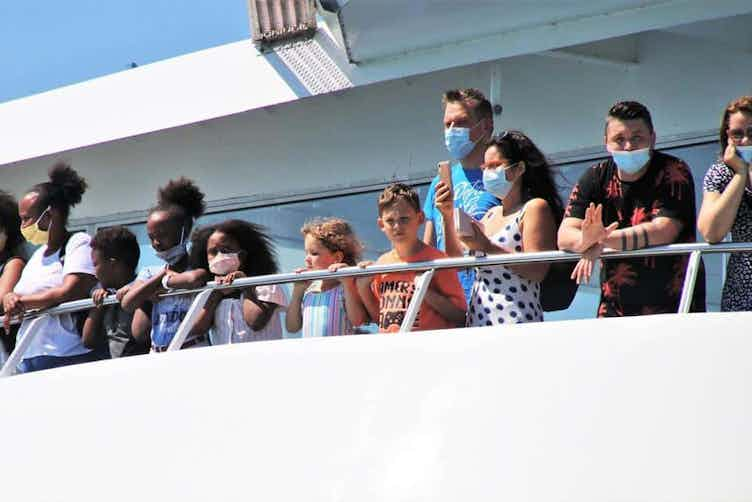None of us has experienced a global pandemic before. So, it’s only natural to have questions about the virus. We receive a barrage of information every single day at the moment, telling us the latest on public health advice as well as roundups on worldwide news reports.
All this can quickly lead to worry and confusion. Sometimes, you just need simple facts to keep perspective. We all want to return to normal, or indeed a new normal as quickly as possible too. In this article, we look at what we know about COVID-19, so you can live life to the full this winter and beyond.
Which Organs Are Most Affected By COVID-19?
We all know that COVID-19 affects everyone differently. But if you are symptomatic with this illness, what can you expect? Studies into the virus are ongoing, but we do know it attacks the respiratory system.
This is what leads to the common symptoms, which are:
- A continuous cough.
- A high temperature, which can be checked by simply placing a hand on a chest or back if you don’t have a thermometer.
- A loss of smell or taste.
But some people have other symptoms too, and this is because when COVID-19 enters our bodies, it targets healthy cells. The way it interacts with these cells means that it can travel across the body. This is why some suffer other complications, like problems with their kidneys and heart, or neurological effects.
Some of us are more susceptible to become very ill from the disease. They include those who are defined as “clinically vulnerable” and “clinically extremely vulnerable” by the NHS. In real terms, that describes people who fall into specific categories, such as people who are receiving chemotherapy, have had an organ transplant, or have a severe lung condition.
What Country Has The Most COVID-19 Cases?
It’s safe to say that if you read the details of any disease and how it operates, you’re likely to feel a little nervous at the thought of contracting it. But there are sensible precautions you can take, to minimise your risk and the risk of spreading it to others.
When it comes to the UK, we have been particularly badly hit by the disease. But experts argue that although they are recording deaths and cases across the globe, every country has a different way of recording those numbers. So, there are bound to be some discrepancies.
However we look at it, the UK is up there as one of the worst-hit countries, along with the US, Brazil, Mexico and India.
Is A Headache A Symptom Of The COVID-19 disease?
The tricky thing is that COVID-19 does have several symptoms, and a headache has been noted as one of them. This doesn’t mean that every sufferer has a headache, or that your headache is a sign of COVID-19. That said, it’s good to know what COVID-19 symptoms can feel like.
With headaches, they are only evident in a small percentage of COVID cases, and they’ve appeared both early and late in the illness. They do feel a little different to your average headache, from say tension or stress. Here are some of the common trends identified in COVID patients:
- The headache has been described as moderate or severe.
- The sensation has been defined as pulling or pressing.
- You feel the pain on both sides of your head, rather than localised to one side only.
- It may feel worse if you bend forwards.
Before you panic, assess any other symptoms such as a cough or fever in the event of a headache like this. If you think you have a few symptoms that match, be sure you arrange a test for COVID-19 as soon as possible.
How Is The COVID-19 Disease Spread?
Here’s the thing that worries us, COVID-19 spreads easily compared to some other viruses. It especially likes being indoors, which is why there have been restrictions on interactions in indoor public places since the disease took hold.
It’s spread either by droplets in the atmosphere or through contaminated surfaces. If an infected person sneezes or coughs, those droplets can be picked up by someone who’s in proximity. Similarly, if an infected person touches a surface, the virus can stay there for a time, and be picked up by the next person who touches that same area.
This is why the government are advising us to cough into our elbow or a tissue, wear face coverings, and wash or sanitise our hands regularly. Some locations and situations are deemed higher risk than others, due to the sorts of environments the virus survives in best, and these include:
- Pubs and restaurants.
- Family gatherings.
- Gyms.
- Amusement parks.
- Anywhere with larger gatherings, such as places of worship or music concerts.
It stands to reason many events have been cancelled because of the virus, and that there are guidelines in place for socialising with family and friends or going to a public place. These are there to try and contain the virus and stop the spread as much as possible.
How Can I Prevent The Spread Of COVID-19?
Talking about COVID-19 doesn’t make for much positive chat these days! It’s important to understand that while the virus is affecting people’s physical health across the globe, it’s also normal to feel worried and anxiety in the face of it.
We do have ways to reduce the risk though, and it's essential to stay positive wherever you can so we can all stay healthy and take care of our mental health as we weather the storm COVID-19 has imposed on us.






